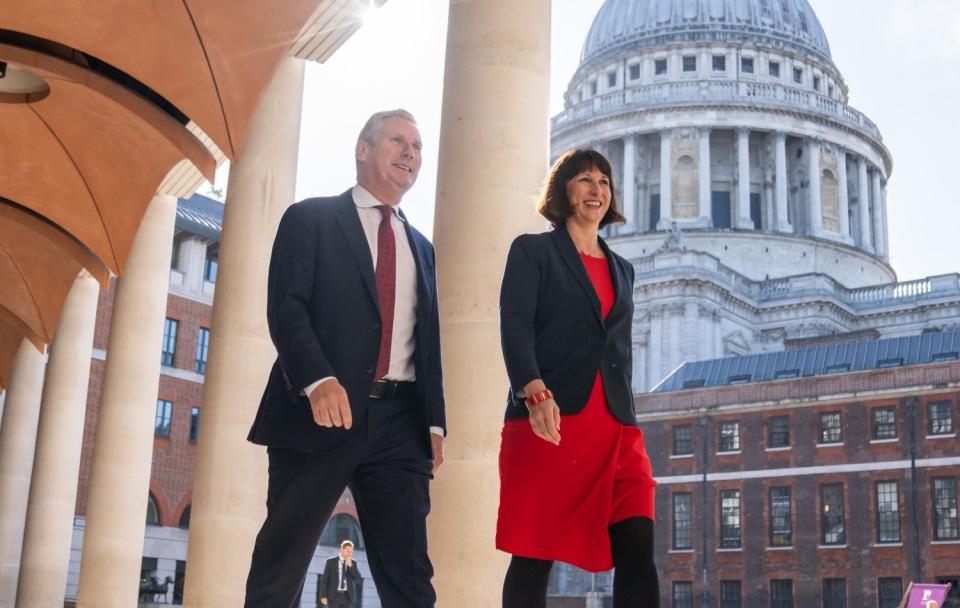Labour adviser sounds alarm on Keir Starmer’s City tax raid

Labour risks destroying a key investment pipeline helping to grow the UK’s next generation of $1bn businesses if it launches a tax raid on the City, one of its advisers has warned.
Anne Glover, chief executive of Amadeus Capital Partners, a venture capitalist firm that has invested in 190 mostly British businesses, said Sir Keir Starmer’s proposed crackdown on private equity would “change the economics [of investments] dramatically” and lead to an exodus of cash and talent in the sector.
Venture capitalists hope to back growth businesses, taking big risks to fund small companies with prospects of becoming much larger concerns.
Typically the goal is to find potential “unicorns”, which are companies with a valuation of at least $1bn.
While Ms Glover, who was one of 10 advisers Labour consulted as part of its review of financial services, said the party “absolutely” understood the importance of supporting entrepreneurs, she told the Telegraph that proposals to change the treatment of so-called carried interest would cost the Exchequer money instead of bringing it in.
Carried interest is one of the main ways that fund managers at private equity and venture capitalist firms pay themselves.
Currently the share of a fund’s investment profits is taxed at the capital gains rate of 28pc. Labour wants to close what it has branded a “loophole” and treat this performance-related pay as income. This would mean the money would be taxed at 45pc for most individuals.
But Ms Glover said companies would be forced to reappraise their investment if the rules were changed.
“It would change the economics for all of the people who work in it dramatically,” she said. “Instead of working for 10 to 12 years to achieve a great capital outcome alongside entrepreneurs who are also getting a great capital outcome, you get taxed as if it was income, which it isn’t.”
An attempt to change carried interest rules in the US was blocked by a senator in 2022.
Ms Glover said: “It’s recognised worldwide that it’s appropriately taxed as capital gain. So we would be quite out of step with the rest of Europe and the US if we did change those rules.”
She warned that the consequences for the economy from an exodus of talent and capital were huge.
Ms Glover said: “I would predict that they would lose as much in lost activity because the private equity guys can move, they’ll just go live somewhere else.”
She added that for venture capital firms like hers that must stay in the UK to support the early-stage companies they invest in, the impact would be more insidious.
Ms Glover said: “I think it’s a long term consequence, not a short term consequence. I think you’ll just attract less talent into the business and [by that] I mean less successful companies.”
Rachel Reeves, the shadow chancellor, has already suggested that fund managers who make bets with their own money will continue to see capital gains taxed as such. However, the Labour Party also estimates it could raise more than £500m from the roughly 2,000 people who receive carried interest each year.
“We [put ourselves] at risk for years. We accept lower salaries – massively lower salaries than the rest of the financial industry. We take personal risk by putting our own money alongside our investors. And then if we are successful – and by the way it’s only half of firms that are ever successful – the ones [that are] get a large lump sum, probably eight to 14 years after you start working on a portfolio,” said Ms Glover.
“So then, to have taken all of that risk and done it at a much reduced income level in order to align yourself with [other investors] and entrepreneurs, both of whom get taxed on capital gains, why should we be treated differently?”

 Yahoo Finance
Yahoo Finance 